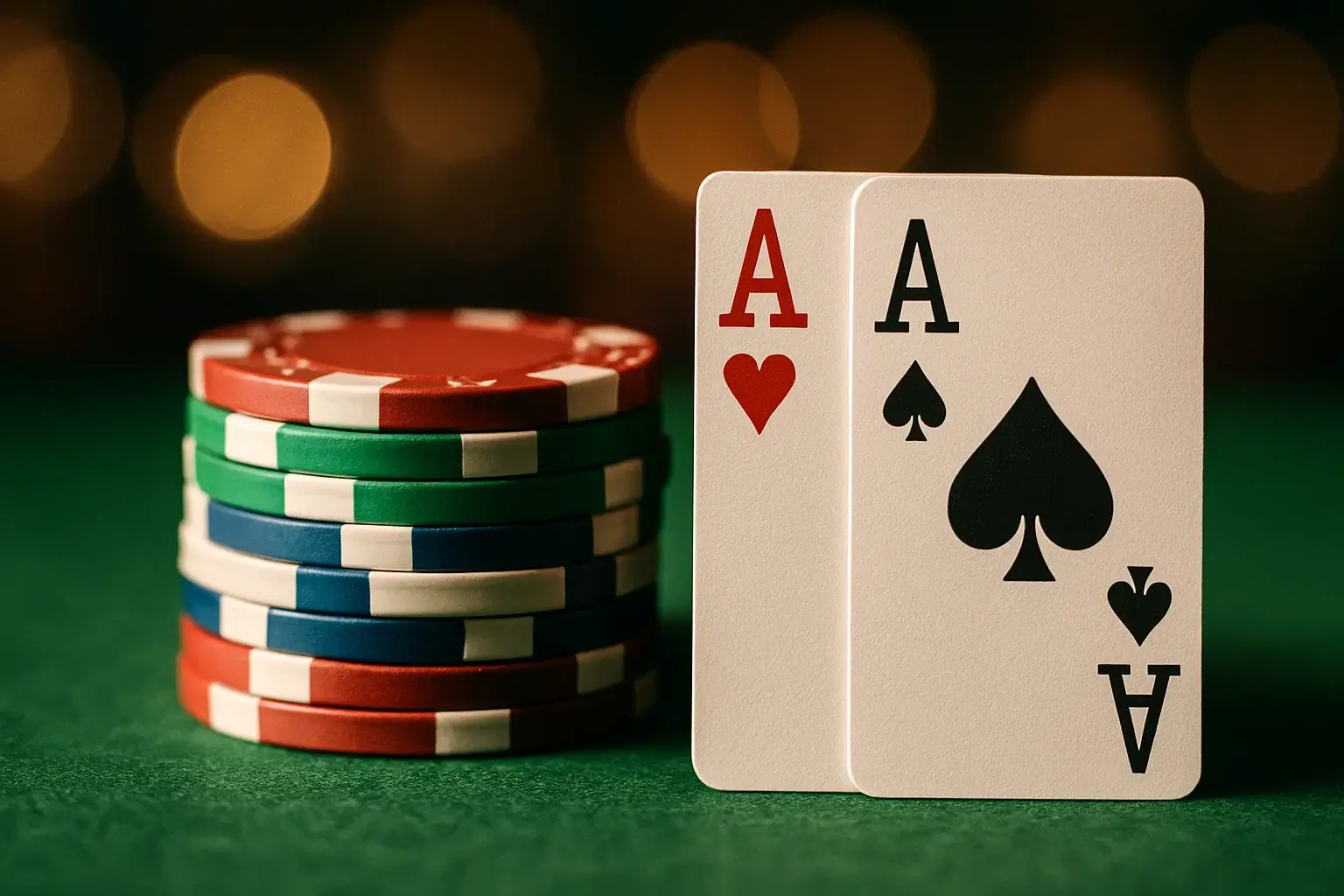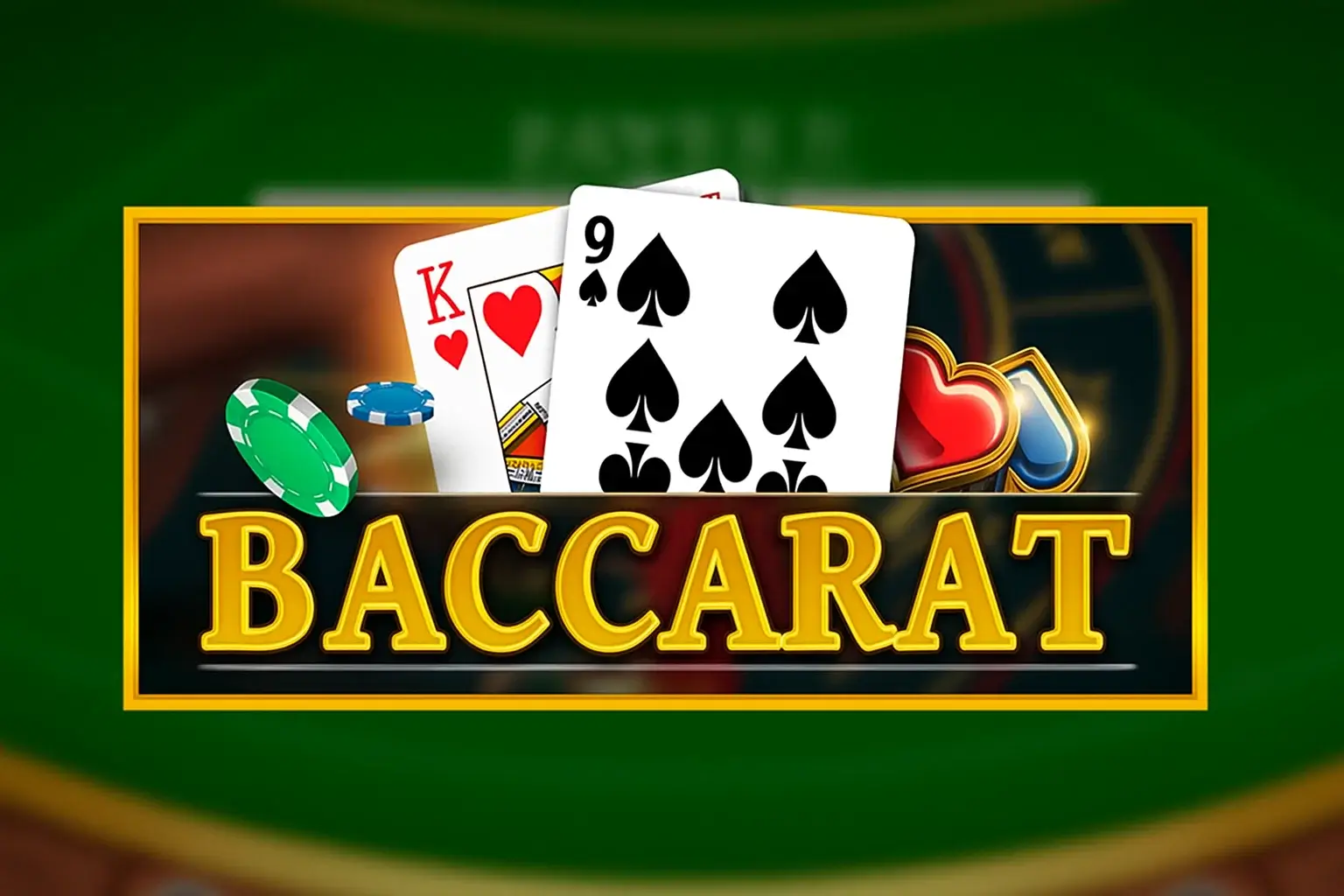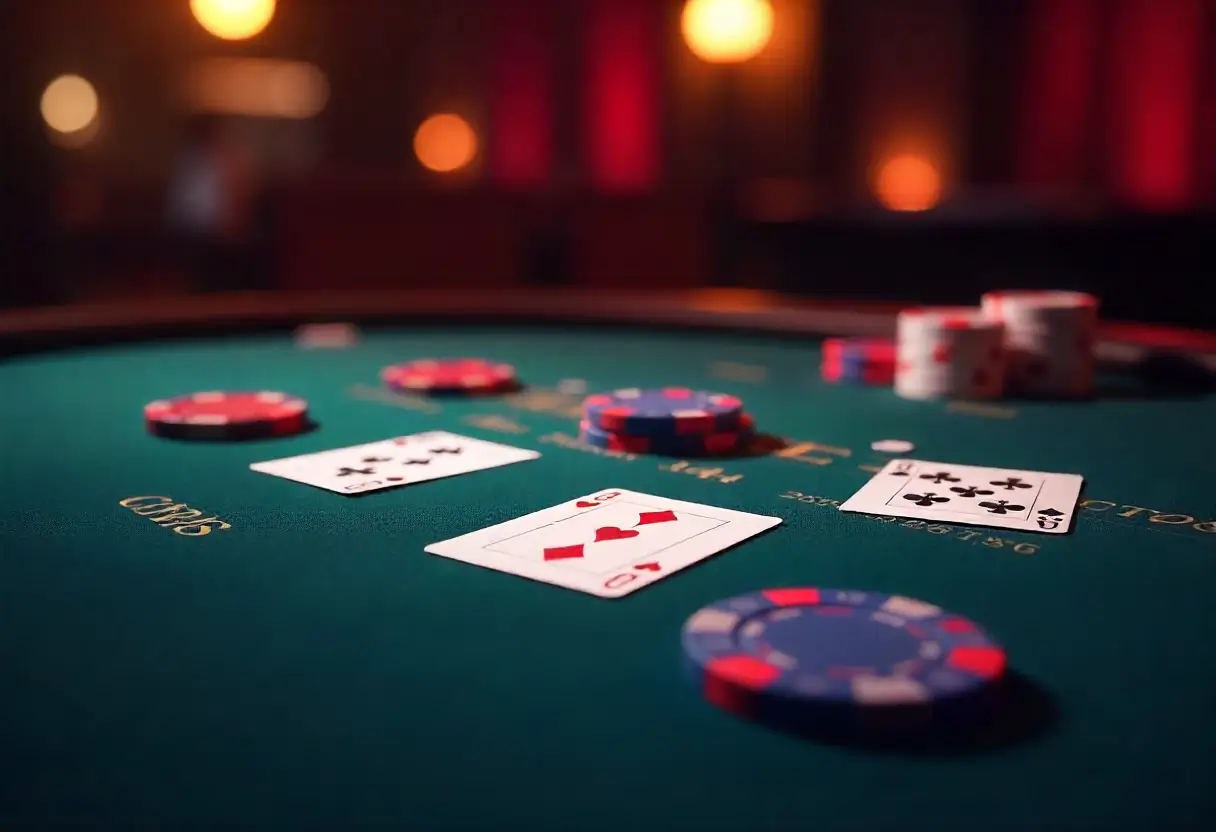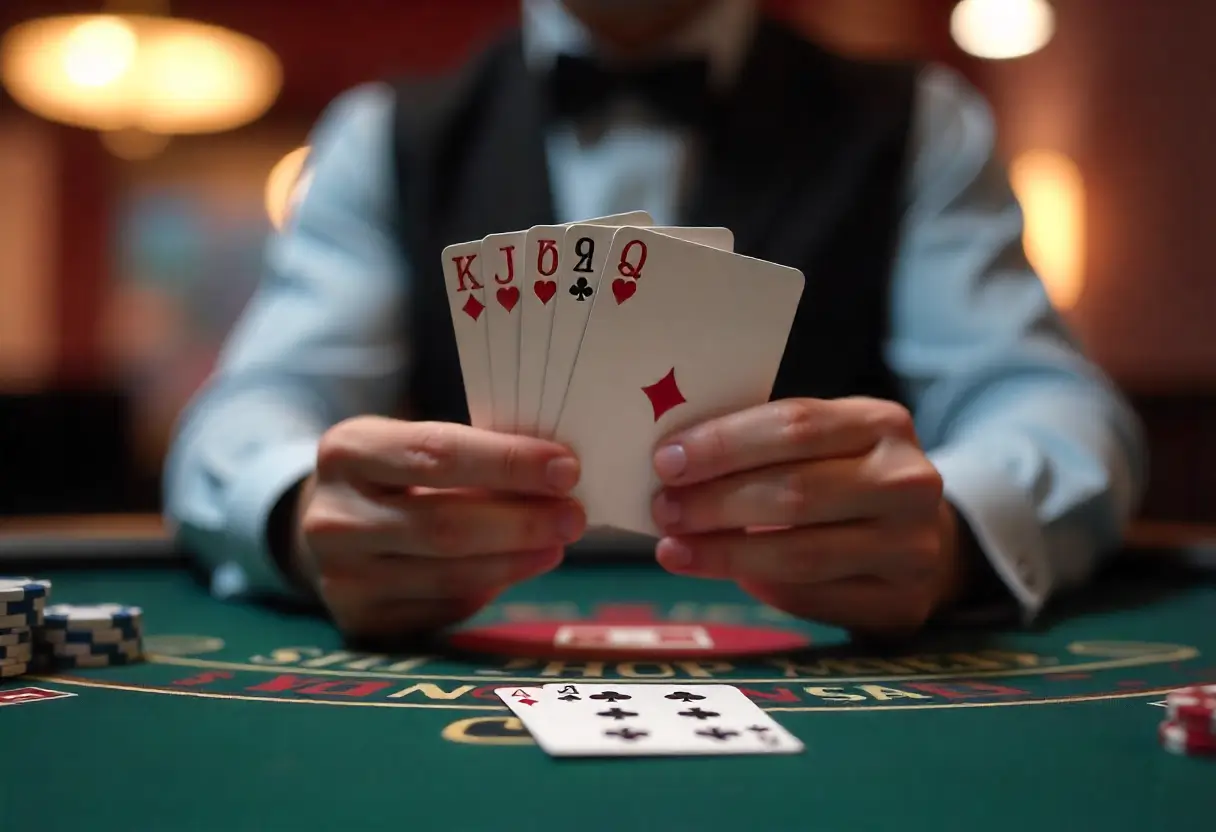A Professional Guide to Playing Smart and Avoiding Costly Mistakes
I remember watching a man at a blackjack table lose a thousand dollars in thirty minutes. He was a newcomer – I could tell by his confused gestures and questions to the dealer. What fascinated me most wasn’t that he lost. People lose at casinos constantly. What fascinated me was watching his thought process deteriorate.
He started with a reasonable approach. Then, as he lost, his bets increased. He was trying to recover losses quickly. His strategy became increasingly emotional and irrational. By the end, he was making obviously terrible decisions – hitting on seventeen, doubling on bad hands – all because frustration had overridden logic.
I walked over afterward and introduced myself. He told me he’d never gambled before and thought he’d understood the game. He had a thousand dollars he’d been saving. Now it was gone.
That conversation sparked something in me. I realized that most casino losses aren’t random. They’re not just bad luck. They’re often the result of poor strategy, emotional decision-making, and misunderstanding basic principles.
Over the last nineteen years as a professional gaming analyst, I’ve dedicated myself to understanding why some players succeed and others fail. The answer isn’t complex. It’s not mysterious. It comes down to strategy, discipline, and understanding fundamentals.
This guide will teach you exactly what you need to know to approach card games intelligently.
The Foundation: Understanding Your House Edge
Before we discuss strategy, you need to understand one fundamental concept that will color everything else: the house edge.
The house edge is the mathematical advantage the casino has over you. It’s built into every game. No strategy will eliminate it. The best you can do is minimize it through smart play.
Here’s what this means practically. If you play blackjack with poor strategy over a year, the house edge might be 3%. You’ll lose approximately thirty dollars per thousand wagered.
If you play blackjack with optimal basic strategy, the house edge drops to 0.5%. You’ll lose approximately five dollars per thousand wagered.
That’s the difference strategy makes. Not zero losses – you’ll still lose money over time because the house edge always exists. But dramatically reduced losses.
This is the most important concept to internalize: you’re not playing to win money. You’re paying for entertainment. The goal is to minimize how much you pay for that entertainment.
Once you accept this, everything changes. You stop thinking you’re going to get rich. You stop trying to beat a mathematical disadvantage. You focus on minimizing losses and maximizing entertainment value.
Basic Strategy for Blackjack: The Charts That Changed the Game
Blackjack is unique among casino card games because basic strategy is well-established, mathematically proven, and publicly available. This makes it the perfect place to start discussing strategy.
I strongly recommend learning blackjack basic strategy if you plan to play blackjack. It’s not difficult. A basic strategy chart fits on one page. You can memorize it in a few hours.
Here are the fundamental principles:
Always split aces and eights. Ace-ace makes twenty-two, which you’ll split into two aces hoping for ten-value cards. Eight-eight makes sixteen, which is one of the worst hands, so splitting might produce two better hands.
Never split tens or fives. Two tens make twenty, which is excellent. Two fives make ten, which you can double down on instead.
Always double on eleven. One more card almost certainly gives you 12-20, which is powerful. The math heavily favors doubling.
Hit on sixteen against high dealer cards (seven through ace). The dealer’s showing strength, so you need to improve. Hitting is correct even though you risk busting.
Stand on seventeen or higher. The probability of improving is lower than the probability of busting. Just stand.
Never take insurance. This is a side bet that mathematically loses money. Skip it.
These aren’t suggestions. These are mathematically optimal moves. Following them reduces the house edge from 2-3% down to approximately 0.5%.
I’ve met many players who don’t follow basic strategy. They play “by feel” or “by intuition.” I understand the appeal. Intuition feels like control. But intuition often conflicts with mathematics. And mathematics wins over the long term.
Baccarat Strategy: Simplicity as Strength
Baccarat is more limited strategically than blackjack. You don’t make decisions during the hand. You just choose: Player, Banker, or Tie.
The strategic guidance is simple:
Always bet on Player or Banker. Never bet on Tie. The Tie bet has a terrible house edge of around 14%, while Player and Banker both have around 1.06% edges.
Choose consistently. Bet on Player every hand, or Banker every hand. Don’t alternate. Some players believe alternating improves odds. It doesn’t. Each hand is independent. Your previous bet has zero impact on the next hand.
Understand the commission. Banker bets pay slightly less (often at 0.95-to-1 instead of 1-to-1) due to commission. This accounts for the Banker’s slight advantage. Both bets have similar overall house edges despite different payouts.
That’s essentially it for baccarat strategy. The game is simple. Strategic sophistication is limited because you’re not making multiple decisions. The simplicity is partly what makes baccarat appealing to certain players.
Poker Strategy: Reading Hands and Positions
Poker strategy is more complex because you’re competing against other players, not just the house. But some basic principles apply.
Understand hand rankings. You can’t play poker without knowing what beats what. Royal flush beats straight flush. Straight flush beats four of a kind. And so on.
Play tight early. When you’re learning, play only strong hands: pairs, high cards (ace-king, ace-queen), broadway cards. Fold weak hands. This keeps you out of trouble.
Position matters. Late position (betting after others) is stronger than early position. When you act last, you see what others do before deciding. That’s information.
Don’t chase losses. If you’ve lost several hands, resist the urge to “get even” by playing weak hands aggressively. That’s how bad decisions multiply.
Fold often. Inexperienced players fold too little. They think they should “play more hands.” Actually, folding weak hands is one of the best strategies. Folding saves you money.
Bluff rarely early. Bluffing is a small part of poker. New players overweight bluffing in their thinking. Focus on playing strong hands well before worrying about bluffing.
These principles will serve you reasonably well when starting poker. As you improve, strategy becomes more nuanced. But these fundamentals never stop applying.
Casino Hold’em Strategy: When to Fold and When to Call
Casino Hold’em requires one critical decision: call or fold before seeing the community cards.
The optimal strategy involves knowing which two-card combinations warrant a call.
Call with: Any pair, any ace-king, any ace-queen, king-queen suited, and a few other premium combinations.
Fold with: Everything else.
The exact list of “call” hands can vary slightly based on mathematical optimization, but the principle is consistent: you call with strong hands that have a reasonable chance of becoming the best hand after the community cards are revealed.
Many Casino Hold’em players use the casino’s published “call strategy” as a guide. This is fine – it’s usually reasonably optimized.
The key principle: folding is acceptable and often correct. You don’t feel pressured to play every hand. You’re selectively entering hands based on your starting cards.
Pai Gow Poker Strategy: Hand Arrangement
Pai Gow Poker’s strategy centers on arranging your seven cards optimally into a five-card high hand and two-card low hand.
Basic principle: Play your strongest possible five-card hand as your high hand. Put your next strongest combination in your two-card low hand.
Exception: If you have three pairs, play the highest pair in your low hand and the other two pairs in your high hand. This balances your chances of winning both.
Exception: If you have two pairs of high cards and a weak kicker, sometimes split them – high pair in low hand, medium pair in high hand with a strong kicker.
These exceptions require experience to execute properly. When starting, just follow the basic principle: strongest five-card hand as your high hand, next strongest in low hand.
Most casinos provide a “house way” showing how they’d arrange cards. Following the house way is fine for beginners.
Red Dog Strategy: The Raise Decision
Red Dog strategy is purely about the raise/don’t raise decision.
The principle: Raise when the spread (the gap between the two cards) is wide. Don’t raise when the spread is narrow.
Specifically: Raise when the spread is six or wider. Don’t raise on spreads of five or less.
This is based on mathematical probability. With a spread of six or wider, you’re likely to win. With smaller spreads, you’re likely to lose.
That’s essentially all the strategy Red Dog requires. It’s beautifully simple.
Dragon Tiger Strategy: There Is None (And That’s the Point)
Dragon Tiger has no strategy. It’s pure chance. One card versus one card. The higher card wins.
You have no decisions to make. No strategy to employ. That’s the entire appeal – simplicity.
The only “strategy” is bankroll management, which applies to all games.
The Master Strategy: Bankroll Management
Across all games, one strategy matters more than any other: bankroll management.
Your bankroll is the money you’ve set aside for gambling. It’s money you can afford to lose completely. Never gamble with money you need for rent, food, or other essentials.
The 5% Rule: Never wager more than 5% of your bankroll on a single bet. If your bankroll is one thousand dollars, maximum bet is fifty dollars per hand.
This rule protects you from catastrophic losses. Even in a losing streak, you’ll have enough bankroll to continue playing and potentially recover.
The Session Budget: Decide your session budget before you play. How much are you willing to lose tonight? Two hundred dollars? Five hundred? Once you’ve set that figure, don’t exceed it.
When you’ve lost your session budget, you’re done. Don’t keep playing. Don’t dig deeper. Accept the loss and move on.
The Win Limit: This is optional but recommended. Set a win target. If you win a certain amount – maybe fifty percent of your session budget – you stop and walk away with the win.
For example: You sit down with a two-hundred-dollar session budget. You win a hundred dollars. Your win target was one hundred. You stand up and leave with the money.
This might seem silly – why not keep playing if you’re winning? The answer is discipline. Many players who are ahead give it all back by continuing to play. Setting a win limit protects you from that temptation.
The Loss Limit: Similar to win limit, a loss limit means you stop after losing a set amount, even if you have bankroll remaining.
Session budget can be five hundred dollars, but your loss limit tonight is three hundred. You’ll stop after losing three hundred, keeping two hundred in reserve for another session.
Avoiding “Chase Mode”: This is critical. Chase mode is when you’re losing and you increase bets trying to recover losses quickly. Resist this urge completely.
When you’re losing, the statistical odds haven’t changed. You have no advantage. Increasing bets when you’re losing just accelerates your losses.
I’ve watched countless people destroy their bankrolls by chasing. It’s one of the most common mistakes I observe. The solution is simple: accept your losses and maintain your betting discipline.
The Most Common Mistakes Newcomers Make
I’ve been analyzing casino players for nineteen years. I’ve noticed patterns in how newcomers fail. Here are the most common mistakes:
Mistake One: Assuming past results predict future outcomes.
You’ve won three blackjack hands in a row. You feel lucky. You increase your bet.
This is a mistake. Each hand is independent. Your previous wins have zero impact on the next hand. The odds are identical whether you’ve won three in a row or lost three in a row.
This mistake is so common it has a name: the Gambler’s Fallacy. Resist it completely. Your past results don’t predict the future.
Mistake Two: Trying to recover losses quickly.
You’ve lost a hundred dollars. You’re frustrated. You decide to make one big bet to “get even.”
This is chasing. And chasing is how people lose their entire bankroll.
Accept your losses. Maintain discipline. Play normal-sized bets. The odds haven’t improved. Betting more doesn’t help you. It just accelerates additional losses.
Mistake Three: Playing when emotional.
You’re angry. You’re frustrated. You’re desperate. You’re excited.
Emotions are the enemy of good decision-making. When you’re emotional, you make worse choices.
My recommendation: if you’re experiencing strong emotions, step away from the table. Take a break. Get some air. Come back when you’re calm.
The games aren’t going anywhere. They’ll still be there when you’re in a better mental state.
Mistake Four: Not understanding the house edge.
Newcomers sometimes think strategy will let them beat the house. It won’t.
Strategy minimizes losses, not eliminates them. The house always has an edge. You’ll lose money over time. Accept this going in.
This acceptance removes pressure. You’re not trying to beat an unbeatable advantage. You’re paying for entertainment and minimizing the cost.
Mistake Five: Playing games they don’t understand.
Someone walks up to a baccarat table with no idea how baccarat works. They place a bet. They hope for the best.
This is a recipe for poor decisions and larger losses.
Before you play any game, understand it completely. Learn the rules. Understand the strategy. Know the house edge. Only then should you play for real money.
Mistake Six: Using betting systems that don’t work.
The Martingale. The D’Alembert. The Fibonacci. Dozens of betting systems exist, all promising to beat the odds.
None of them work. Not a single one.
Betting systems are based on faulty logic. They might temporarily feel like they’re working, but over time, they fail. They don’t change the house edge. They don’t improve your odds. They just change how fast you lose.
Ignore betting systems entirely.
Mistake Seven: Drinking while gambling.
Alcohol impairs judgment. It makes you less disciplined. It makes you more likely to chase losses, increase bets, and make emotional decisions.
If you’re going to gamble, stay sober. Keep your mind clear. If you want to drink, do it after you’re done gambling.
Mistake Eight: Gambling for money you can’t afford to lose.
This is the catastrophic mistake. Someone gambles with rent money. Food money. Money they’ve borrowed. Money they’ve promised to someone else.
This is how gambling destroys lives.
Never gamble with money you can’t afford to lose. If you can’t afford to lose the money, don’t gamble it. Period.
Mistake Nine: Gambling alone when lonely or depressed.
Gambling shouldn’t be a coping mechanism for depression or loneliness. If you’re turning to gambling to feel better, that’s a warning sign.
Seek other support – friends, family, mental health professionals. Gambling won’t solve what’s bothering you. It might temporarily distract, but it will likely make things worse.
Mistake Ten: Not taking breaks.
Playing for hours straight leads to fatigue. Fatigue impairs judgment. Impaired judgment leads to bad decisions.
Take breaks. Step away. Play another time. Your decisions are worse when you’re tired.
Knowing When to Increase Bets: The Right Reasons
I’ve discussed when not to increase bets. Let me clarify when you legitimately might increase bets.
Scenario One: Increasing bankroll legitimately.
You started with five hundred dollars. You’ve won, and your bankroll is now eight hundred dollars. You’ve decided to increase your session budget from fifty dollars to seventy-five dollars because your overall bankroll increased.
This is fine. Your bankroll grew, so slightly higher bets are appropriate.
Scenario Two: Adjusting bet sizes based on shoe/deck composition.
In blackjack with multiple players, some experienced players adjust bets based on favorable deck composition. This is advanced strategy and requires card counting knowledge.
For most players, this doesn’t apply. But the principle: if you have genuine information that odds are in your favor, slightly increasing bets might be appropriate.
Scenario Three: Tournament or structured play.
In some casino tournaments or special events, betting structures are predetermined. You’re not making choices about bet sizing – the tournament dictates it.
This is fine because it’s required by the structure.
Knowing When to Decrease Bets: The Right Reasons
Sometimes decreasing your bet size makes sense.
Scenario One: Losing streak.
You’re losing consistently. You’ve lost fifty percent of your session budget. This might be a signal to decrease your bet size slightly – maybe from twenty dollars to fifteen dollars.
This protects what remains of your bankroll. If you recover, you’ve done well. If you continue losing, you’ll lose more slowly.
Scenario Two: Fatigue setting in.
You’ve been playing for three hours. You’re tired. Decision quality is declining. Decreasing your bet size is wise – you’re at higher risk of making mistakes.
Scenario Three: Approaching your loss limit.
You had a loss limit of two hundred dollars. You’ve lost one hundred fifty. You have fifty dollars in reserves. Decreasing your bet size to five or ten dollars gives you more hands to play before hitting your limit.
The Psychology of Betting: Understanding Your Impulses
Understanding why you want to increase or decrease bets is important.
Sometimes you want to increase because the odds genuinely favor you. That’s rational.
Sometimes you want to increase because you’re winning and feel lucky. That’s emotional and irrational.
Sometimes you want to decrease because you’re tired. That’s wise and rational.
Sometimes you want to decrease because you’re scared and no longer trust yourself. That’s emotional and possibly indicates you should stop playing entirely.
Your job is distinguishing rational reasons from emotional ones. Rational reasons are fine. Emotional reasons should generally be ignored or should trigger you to step away.
Setting Realistic Expectations: The Winning Perspective
Here’s what I want to emphasize to newcomers: the goal isn’t to win big. It’s not to beat the casino. It’s to play well and minimize losses while having entertainment value.
Expectation One: You will lose money over time.
Accept this. This is reality. The house edge means that over time, you’ll lose money. Not catastrophically – with good strategy, the loss is small. But you’ll lose.
Expectation Two: Variance means you might win in any given session.
Even though you’ll lose over time, you might win today. That’s variance. Some sessions you’ll win. Some you’ll lose. Over time, losses slightly exceed wins.
Expectation Three: Entertainment value is real.
Even though you’ll lose money, you might still get genuine entertainment and value. You spent fifty dollars for three hours of entertainment. Is that better or worse value than a movie? A meal? A concert?
For many people, it’s reasonable value.
Expectation Four: Bankroll management determines your experience.
If you manage your bankroll well, you’ll have limited downside and can sustain play long-term. If you mismanage it, you’ll lose quickly and quit frustrated.
Good management means extended entertainment. Poor management means quick losses.
The Discipline Factor: Controlling Yourself
Ultimately, successful casino gambling comes down to discipline.
Discipline to follow strategy even when it feels wrong.
Discipline to maintain bet sizing even when you want to increase.
Discipline to stop even when you’re having fun.
Discipline to accept losses and move on.
Discipline to avoid chase mode.
Discipline to walk away when you’re emotional.
This discipline doesn’t come naturally. It requires practice and conscious effort.
I recommend setting your entire plan before you gamble. Decide your bankroll. Decide your session budget. Decide your win target. Decide your loss limit. Decide your max bet size. Write it down.
Then when you’re at the table with real money on the line and emotions running high, you have your plan to refer to. You don’t have to make decisions in the moment. You’ve already decided.
The Path Forward: Learning and Improvement
My final advice: approach casino gaming as something to learn and improve at, not as a path to wealth.
Study the strategies for games you want to play. Understand the odds. Play with discipline. Track your results. Learn from mistakes.
Over time, you’ll improve. Your decisions will become more automatic. Your discipline will strengthen. Your entertainment value will increase.
Not because you’ll start winning – you still won’t, in the long run. But because you’ll be playing well, managing risk intelligently, and experiencing the games as they’re meant to be experienced.
That’s the goal. That’s what separates successful casual players from unsuccessful ones.



